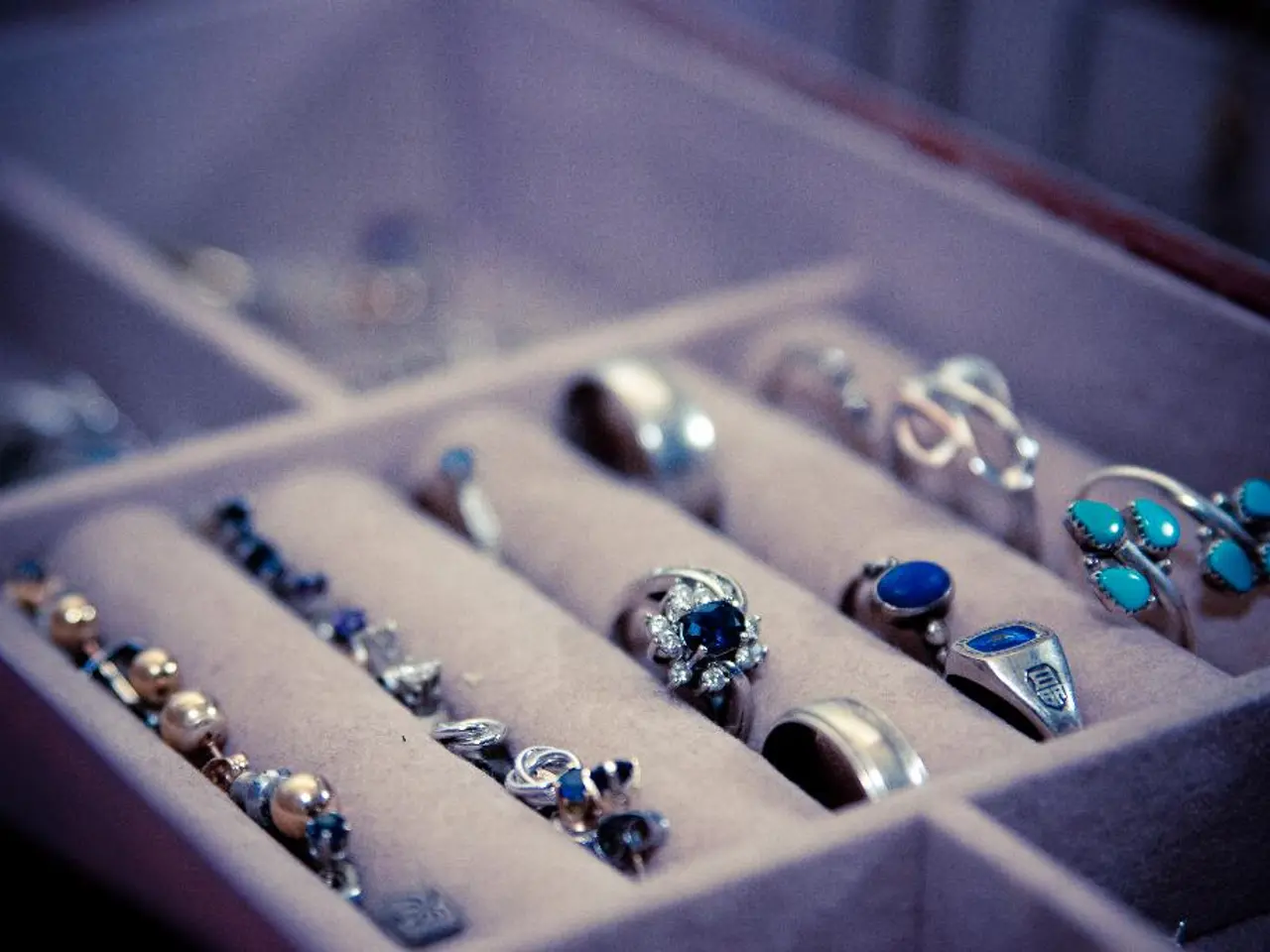Green Gems: Transforming Waste into Valued Resources through Innovative Gold Recovery and Sustainable Technologies
In the heart of Italy, the jewelry sector is leading the way towards a more sustainable future. With a significant focus on sustainability, Italian jewelry companies are adopting responsible sourcing, traceability, and ethical business practices, supported by relevant certifications.
One such company, Btt Impianti, based in Arezzo, has made a groundbreaking move by providing the world's first plant that recovers precious metals from electronic cards using a sustainable, hydrometallurgical process. By focusing on waste recovery rather than extraction, Btt Impianti is setting a new standard for sustainable practices.
The Responsible Jewellery Council (RJC), an international organization with about 3,000 companies worldwide, plays a crucial role in this movement. The RJC offers certifications such as the Chain of Custody (COC) and Code of Practices (COP) to ensure responsible sourcing, traceability, and ethical business practices. In Italy, approximately 15% of RJC's companies are based, showcasing a high level of attention to sustainability.
Marco Bicego, a leading jewelry brand based in Trissino (Vicenza), emphasizes the importance of sustainability certificates for his company. Bicego's company controls its entire internal supply chain for sustainability purposes and buys certified gold from the London Bullion Market Association. Fabiani, another prominent Italian jewelry brand with stores throughout Italy, follows suit by purchasing gold only from Italian producers with sustainability certifications.
Fabiani also ensures that its sources for precious stones, such as diamonds, are sustainable and meet certain standards. This commitment to sustainability is reflected in the trade balance, with the jewelry, silverware, and jewelry trade balance for the first 9 months of 2024 reaching €9.420 million, representing a +55.8% increase compared to the surplus in the corresponding period of 2023 (€3.376 million more).
Stefano De Pascale, the director of Confindustria-Federorafi, highlights the jewelry sector's role as a major driver for Italy. He notes that the sector is at the forefront in embracing sustainability, with over 300 companies in Italy demonstrating this commitment.
Industry initiatives like the Kering Generation Award X Jewelry encourage innovation, combining creativity and sustainability. This award promotes the use of imperfect gems and circular economy principles within Italian and global luxury jewelry sectors.
In summary, Italian jewelry companies achieve sustainability by adhering to recognized standards such as RJC COC and COP certifications, adopting traceable and ethical sourcing practices, embracing circular economy methods, and ensuring transparent communication with stakeholders. These measures align their operations with global responsible sourcing and sustainability goals. Proving sustainability level is crucial, and obtaining appropriate certificates is a key step in this process.
The Responsible Jewellery Council (RJC) expands its international influence by certifying Italian jewelry companies, such as Marco Bicego and Fabiani, who prioritize sustainability in their practices. In line with this focus, these companies also incorporate sustainable sports initiatives, like the Kering Generation Award X Jewelry, which promotes a circular economy and the use of imperfect gems in the jewelry sector.
Moreover, Italy’s favorable weather conditions contribute to the success of these initiatives. For instance, the hydrometallurgical plant by Btt Impianti in Arezzo, which recovers precious metals sustainably from electronic cards, benefits from Italy’s moderate climate to optimize its energy-efficient processes.






